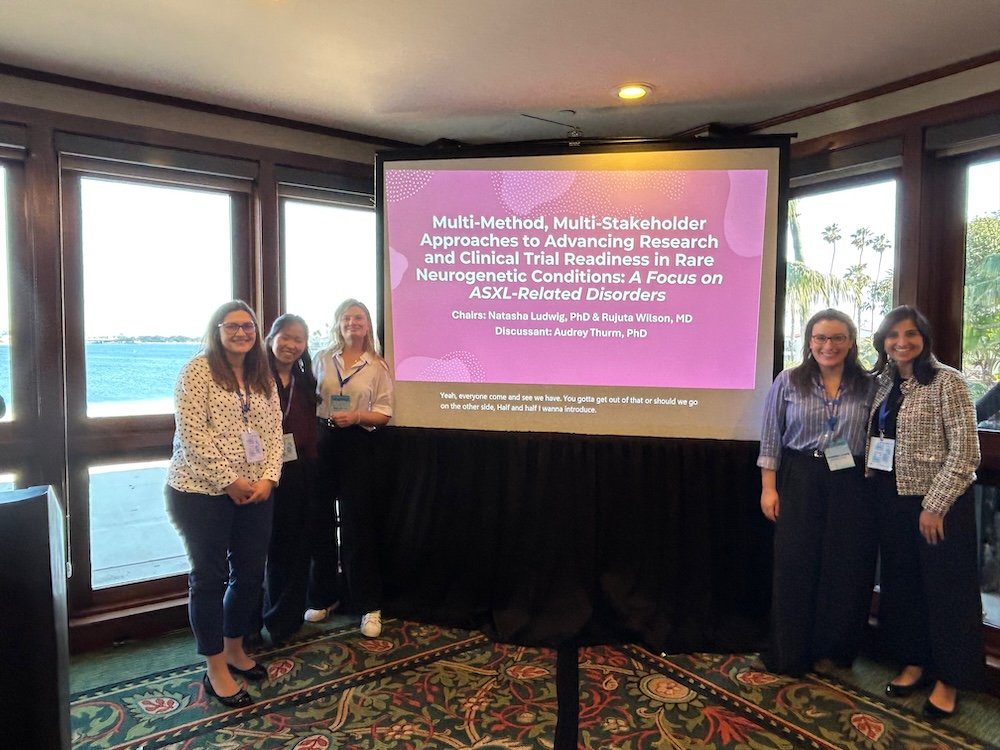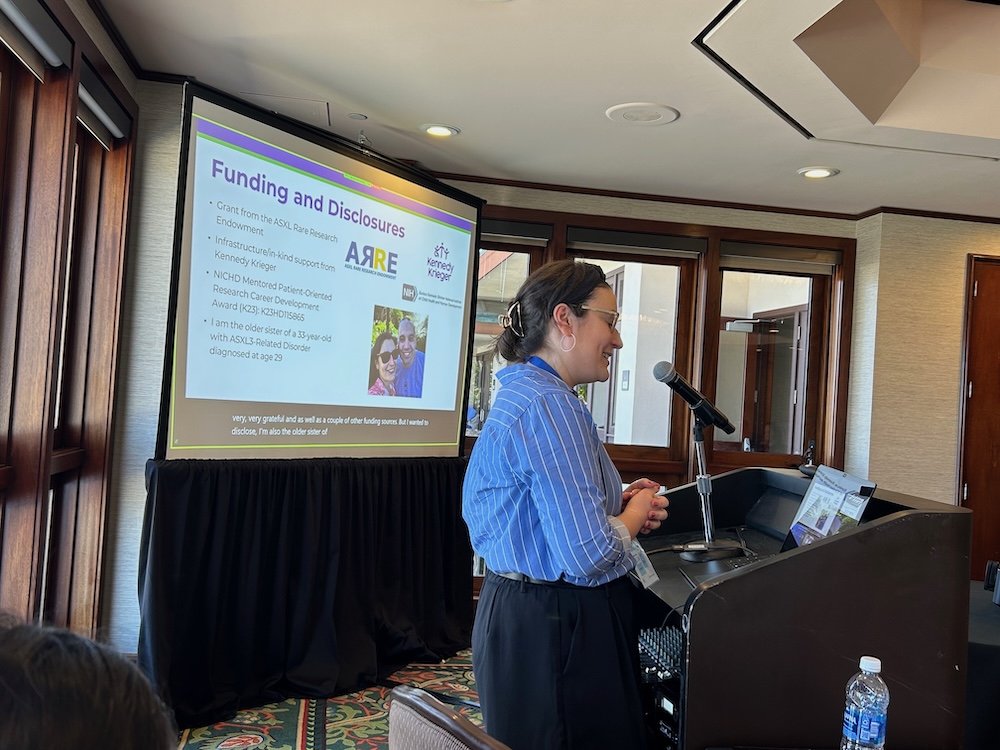Partnering for progress at the Gatlinburg Conference



Earlier this month, the ASXL Rare Research Endowment (ARRE) Foundation was honored to participate in the 2025 Gatlinburg Conference on Research and Theory in Intellectual and Developmental Disabilities—one of the leading annual gatherings for behavioral scientists working in the field. Held since 1967, the conference brings together researchers from across the globe to share their latest findings and explore new opportunities for collaboration.
This year, the ARRE Foundation presented in a symposium titled Multi-Method, Multi-Stakeholder Approaches to Advancing Research and Clinical Trial Readiness in Rare Neurogenetic Conditions. The session focused specifically on ASXL-related disorders, which include Bohring-Opitz Syndrome (ASXL1), Shashi-Pena Syndrome (ASXL2), and Bainbridge-Ropers Syndrome (ASXL3). These rare genetic disorders are characterized by intellectual disability, autism spectrum disorder, severe motor challenges, and a range of complex medical needs.
The session was co-chaired by Dr. Natasha Ludwig, neuropsychologist at Kennedy Krieger Institute and Johns Hopkins University School of Medicine—and a sibling of an adult with an ASXL3-related disorder— and Dr. Rujuta Wilson, neurologist at UCLA. It featured presentations from Amanda Johnson (Executive Director of the ARRE Foundation), Serene Wong and Dr. Abby Dickinson (UCLA), and Dr. Ludwig. Together, the presenters explored how different research methods are helping us better understand ASXL-related disorders and how this work is preparing our community for future clinical trials. These methods include focus groups with families, in-depth cognitive and behavioral assessments, and brain-based measures.
The central message throughout the session was clear: collaboration between researchers, clinicians, and families is not only valuable—it is essential. Our role as a patient advocacy organization was highlighted in each project, showing how the ARRE Foundation has helped shape the research questions, co-design studies, and recruit participants. “We know that when families are involved from the very beginning, research is more meaningful and more likely to reflect real-life challenges and priorities”, said Amanda Johnson.
Dr. Ludwig said, “We are making meaningful progress not just in the research itself, but in how we do the research. By building studies in partnership with families, we’re laying the foundation for truly patient-centered outcomes.”
Much of what was shared at the Gatlinburg Conference builds on the work started through our Research Roadmap survey that identified neurodevelopment, gastrointestinal symptoms, and behavior as top family priorities, and extended through work conducted through the ASXL-Related Disorders Natural History Study, ASXL Behavioral Phenotyping Study (ALPS), and CHAMPION Study. Presentations included data collected at the 2024 ASXL Family Conference, where 40 families participated in in-person focus groups and over 120 research appointments to collect critical data to further our understanding of ASXL-related disorders.
As our community grows, so does our commitment to ensuring individuals with ASXL-related disorders are represented in research that leads to better care and future treatments. Being invited to present at Gatlinburg is recognition that our families’ voices belong in these conversations.
